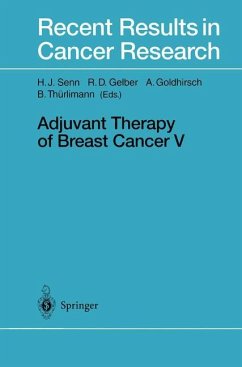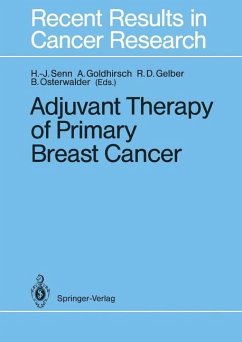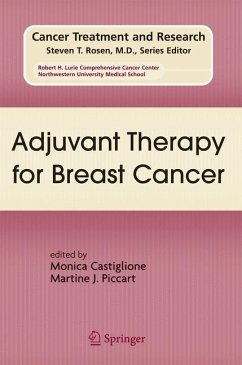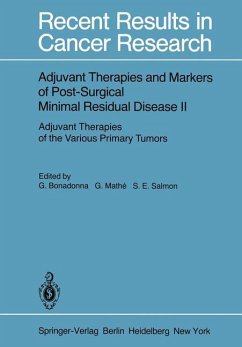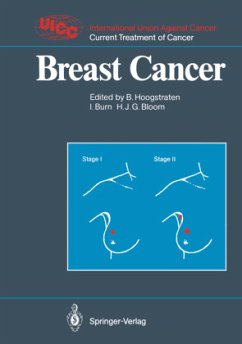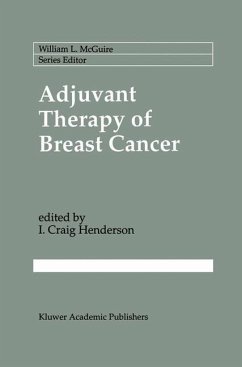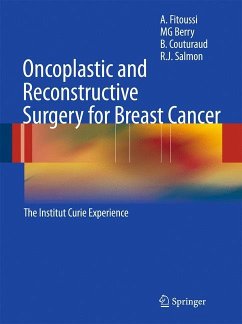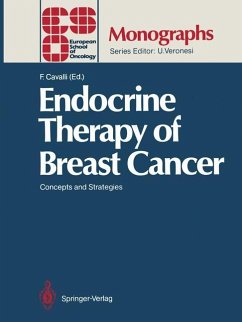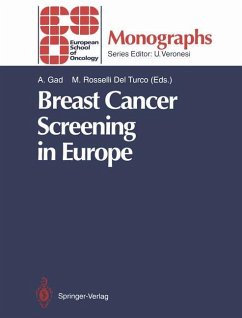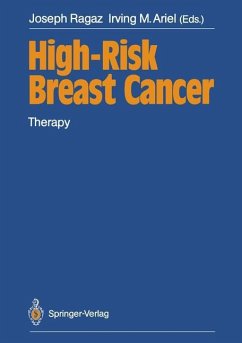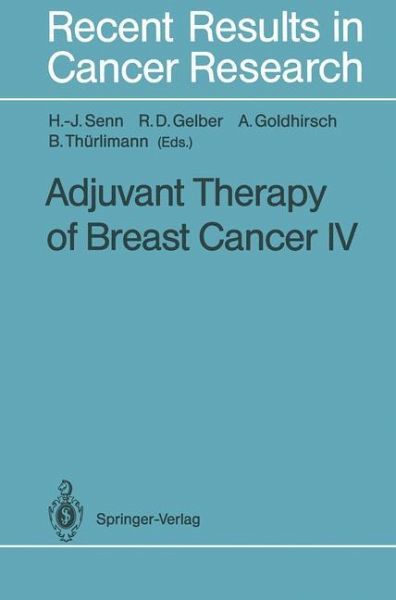
Adjuvant Therapy of Breast Cancer IV

PAYBACK Punkte
39 °P sammeln!
Advances in breast cancer research, achieved through the progress of knowledge and development of new therapies, have been translated into improved quality of care for breast cancer patients. Clinical investigations and clinical trials have made the largest contribution to the body of knowledge that finds its way to the patient. Never before during the past decades of management of breast cancer has there been such a fruitful intellectual cross-fertilization of ideas among individuals involved in the generation of hypotheses, basic research, development of drugs and treatments, conduct of clin...
Advances in breast cancer research, achieved through the progress of knowledge and development of new therapies, have been translated into improved quality of care for breast cancer patients. Clinical investigations and clinical trials have made the largest contribution to the body of knowledge that finds its way to the patient. Never before during the past decades of management of breast cancer has there been such a fruitful intellectual cross-fertilization of ideas among individuals involved in the generation of hypotheses, basic research, development of drugs and treatments, conduct of clinical trials, and statistical evaluation - the results of all of which are now translated into progress in clinical care. Even issues such as the quality of life of breast cancer patients, once the domain for few, are now being openly addressed by trials and discussed in a much broader forum. The IVth International Conference on the Adjuvant Therapy of Primary Breast Cancer, also known as thest. Gallen Conference, was again attended by more than 800 scientists and clinicians interested in this broad spectrum of breast cancer research and the interactions between such diverse fields of interest and specialties as cancer pathology, molecular biology, and psychosocial oncology. This volume collects findings and conclusions presented at the conference.





